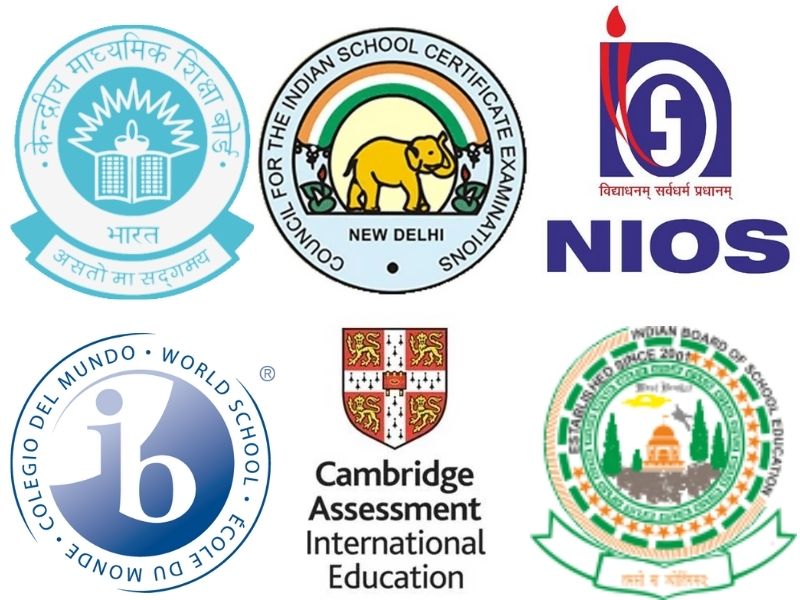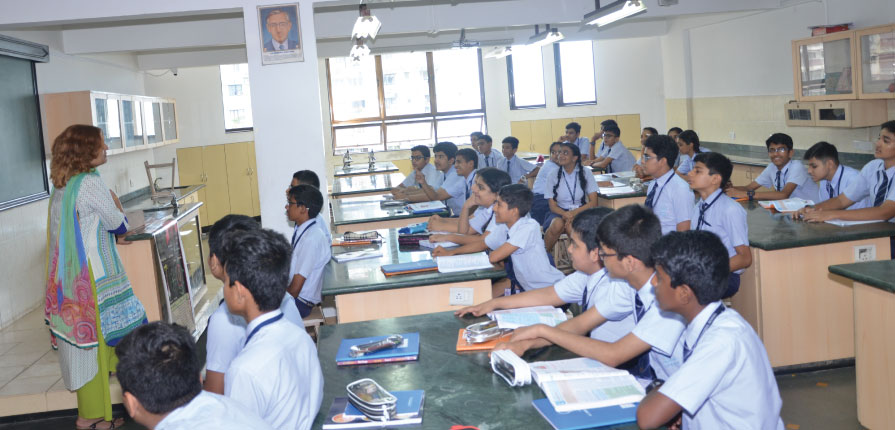With 50% of India’s population below the age of 25, education has become a top priority. Students who want quality education are often confused with the various education boards available in India.
As per research conducted by International Boarding Schools In India, The Central Board of Secondary Education (CBSE), Indian School Certificate Examination (ISC / ISCE) and International Baccalaureate (IB) are three major international boards that offer excellent education and prepare students for the future. All of these boards have their own rules, regulations, infrastructure and curriculum. But are they all worth it? Let’s find out!
Also Read : Which Are The Top 5 ICSE And CBSE Schools For Boys And Girls In India?
Board of education

There are a lot of options when it comes to school boards in India, but which one is best?
First, you have to understand what each board offers.
Board of education
CBSE: The Central Board of Secondary Education is the most popular in India. It is a federally funded board that provides schools with curricula and textbooks. The school’s curriculum can be based on any one of the following subjects: English, Hindi, social sciences and science (including physics, chemistry and biology), mathematics, fine arts and vocational education.
ISCE: The Indian School Certificate Examinations is also a government-controlled examination board that administers exams at the end of class 10th grade for students who attend international schools in India. ISCE is based on an international curriculum that aims to provide equal opportunities for all students regardless of their background or location within the country.
IB: International Baccalaureate (IB) offers a program designed for students between ages 16-19 years old who want to pursue higher education abroad – an option not available under CBSE or ISCE because these boards only test students up until tenth grade.
Content, teaching style and teachers’ accountability

It is a well-known fact that the quality of education in India is highly variable. Many factors contribute to this, but one of the most important is the lack of accountability on the part of teachers.
In some schools, teachers are evaluated by their superiors based on exam results and attendance records. However, these methods do not provide an accurate picture of how well a teacher is doing their job.
To accurately measure learning outcomes, we must look at how much content students have learned and whether they can use it effectively. A student who has mastered a subject will be able to apply what they know when presented with new information or problems.
A student who has not mastered a subject will struggle with applying what they know because they don’t understand it yet.
For students to learn effectively, teachers should be evaluated based on their ability to teach content effectively and ensure that students understand it before moving on to new material.
The way that this can be achieved varies from school to school – some schools use traditional tests at the end of each unit or semester, while others may use online quizzes throughout the year so that students can receive feedback immediately after completing an activity or lecture (or even better yet: during).
The teaching style is also great because the teachers here are very friendly and supportive. They always help students when they need it, and they are always available online or in person if you have any questions or concerns about the course material.
The teachers here respect their students’ opinions and ideas, which makes learning more enjoyable.
Lastly, teachers here are more accountable than other schools because they do not just give tests but also ask us questions about what we learned during class time as well as give us homework assignments where we can apply our knowledge in real-life scenarios (like writing emails).
Exam preparation and evaluation

The education system in India is very different from that of other countries. Many boards offer courses for students who want to take exams for a college degree. There are four main boards on that students can take exams CBSE, ISCE, IB, and Cambridge. These are some of the best education boards in India and they all have their advantages and disadvantages.
Different boards have different requirements for students who want to take their exams. Some require students to have particular qualifications, while others do not require any particular qualifications at all. Some even allow students with disabilities to take their exams which means that they would have more options when it comes time to get into college or university than those who do not have such an advantage!
Each board has its own set of rules regarding how long you must study before taking an exam as well as how long it takes before receiving your results once you’ve finished taking one so make sure you know exactly what each one expects before signing up for anything!
Online exams have gained more acceptance in the education sector in recent years. They are among the best examples of how technology has aided in protecting the interests and fundamental principles of the education sector.
They also assist the sector in keeping pace with current technological advancements and achieving a dynamic, continuously evolving nature, which is necessary for education to remain relevant to changing social norms and values.
One benefit of holding tests online is that there are numerous checks and balances in place to make sure that no fraud is committed. These checks and balances may make online assessments more dependable and effective at catching fraud.
Online examinations won’t have the same issues with human error as offline exams have.
Traditional paper-and-pencil tests require a lot of manual labour that is time-consuming and prone to human mistakes at various points. Exams are becoming difficult to administer and occasionally ineffective due to the rise in schools, universities, educational institutions, and students.
We have a fantastic alternative to offline exams in online exams. Technology offers numerous solutions to the issues that modern traditional exams currently confront.
Advantages and Disadvantages of the CBSE curriculum

The CBSE curriculum is a standardized education program used across the country. The curriculum is designed to be flexible, allowing teachers to add their content to supplement what is taught in the classroom. That flexibility permits teachers to address the needs of their students.
The CBSE curriculum has been adopted by many schools in India, but it has not been universally adopted. For example, some schools have implemented the curriculum while others have not. That means some students may be getting an education that meets national standards while others are not.
One disadvantage of using this curriculum is that it does not allow for much flexibility in terms of what students learn or how they learn it.
Teachers cannot make changes without approval from higher-ups at their school or district level. However, those approvals are challenging to attain because there are so many other schools and districts also implementing the same curriculum at once that there isn’t enough time for everyone’s requests to be approved before the start time next year (or even this year).
Advantages and Disadvantages of the ICSE curriculum

The ICSE curriculum is a great way to prepare yourself for high school education. It is designed to help students learn the basic skills and concepts they will need for success in their high school years.
Some of the advantages of this curriculum are that it provides students with an environment that allows them to take responsibility for their learning, which helps them become more independent learners. It also helps students become familiar with the types of work they will be expected to do during their high school years so they can get a head start on mastering it.
The main disadvantage of this curriculum is that some students may not be ready for it yet, so they may need extra time before they can complete it.
However, there’s no denying that it is not the best option for everyone. Some students may feel that they are not being given enough opportunities to explore their interests, while others may find that they are overburdened with too many subjects to study.
Advantages and Disadvantages of the Cambridge curriculum

The Cambridge curriculum is a comprehensive and rigorous educational program that’s focused on developing students’ academic and personal skills. It’s designed to prepare students for the demands of college and beyond, but it does have some drawbacks.
Advantages
-Develops critical thinking skills
-Prepares students for higher education
-Provides opportunities to explore different subjects
Disadvantages
-It’s expensive
-Requires students to take several years of English and math before they can begin taking electives
Advantages and Disadvantages of the IB curriculum

The first advantage is that there are more opportunities to participate in extra-curricular activities. The second advantage is that students can choose to study a subject that they are passionate about. The third advantage is that the coursework is challenging, which helps prepare students for college.
The fourth advantage is that IB students are encouraged to collaborate with their peers, which helps them develop skills, such as leadership, teamwork, and communication.
Finally, there are no fixed times or dates when assignments or tests must be completed; this gives students more flexibility in scheduling their workloads.
The first disadvantage of the IB curriculum can be seen as an advantage: while there are more opportunities to participate in extra-curricular activities, these activities tend to be more competitive than those offered by other schools (such as sports teams).
Another disadvantage is that students may feel overwhelmed by all their responsibilities (e.g., schoolwork plus extracurricular activities).
Moreover, some teachers do not fully support IB programs because they don’t feel qualified enough to teach them properly; therefore, they may refuse to participate in this education system.
Conclusion
If you are planning your child’s future, it is good to have accurate information about the best education board.
If the government is serious about creating an improved educational system and fixing the problems in the education sector, it must look at the suggestions provided in this report and initiate concrete steps to come up with a solution.
For any queries related to parenting, schooling, or any student-related tips, click here to check out our latest blogs






